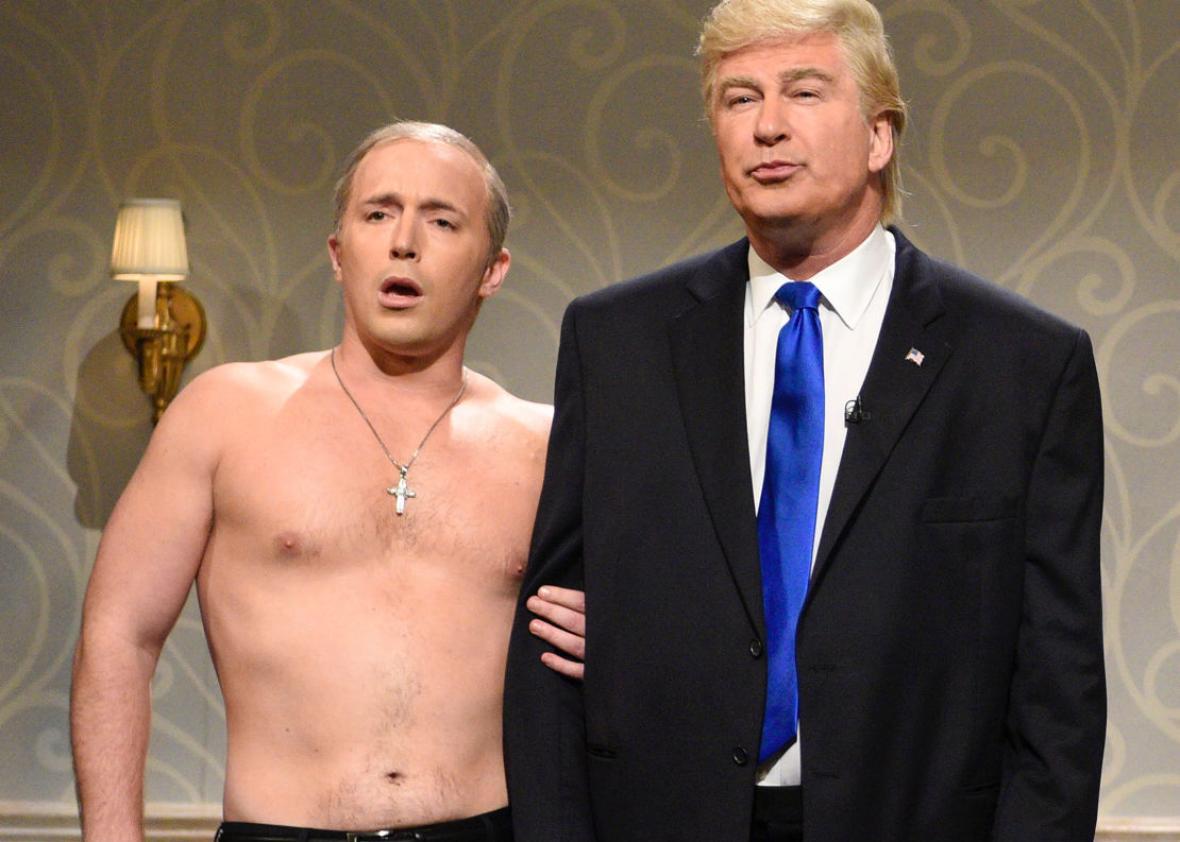The Emmy Awards took a major step forward in their nominations last year, recognizing several exciting new voices while finally curbing their enthusiasm for a few shows well past their prime. Part of this had to do with evolving tastes, prodded by slow but steady changes in the Academy of Television Arts and Sciences’ demographics and shifts in the way we watch and consume TV. But it was also a natural reflection of the fragmented nature of the TV landscape at large: Precious few shows truly reach the masses nowadays, and thus, great shows with small, passionate fan bases theoretically had a greater chance of breaking through. The Emmys’ reputation for laziness—recognizing the same shows and actors over and over, no matter changes in worthiness—started to seem untenable.
If there’s one thing that Thursday’s nominations for the 2017 Emmys proved, however, it’s that laziness can change its shape, too. As the academy turned to a more populist voting system, wherein an unlimited number of candidates could be checked off on a ballot, the industry’s standard-bearer for success favored buzz over quality even more than usual and perhaps previewed a distressing new normal in the way the Emmys choose to navigate the crowded terrain of prestige TV.
Take the Emmys’ choices for Outstanding Drama Series. On its face, the category is a real breakthrough this year, with a record five new shows nominated opposite returnees Better Call Saul and House of Cards—the old cliché of the academy sticking with the old and familiar doesn’t ostensibly hold up at all. But consider what’s taken its place: There was a quartet of dramas that broke out in a big way with viewers last year—NBC’s This Is Us, HBO’s Westworld, and Netflix’s Stranger Things and The Crown—even as they varied in terms of quality and didn’t reach a critical consensus of rapturous praise. Emmy voters went wild for all four nonetheless. The exception among these five newcomers is Hulu’s The Handmaid’s Tale, far and away the most acclaimed show of the freshman class—though it’s hard to imagine Hulu getting on Emmy voters’ radars to the extent that it did without the blunt, terrifying messaging of the incidentally relevant The Handmaid’s Tale.
Speaking of our current end times, it should come as no surprise that the returning series most directly confronting our politics emerged with increased success. The most nominated show of 2017, alongside the tech-heavy Westworld, is not a hot newcomer but one of TV’s oldest institutions: Saturday Night Live. Higher ratings and regained relevance certainly translated to newfound Emmy dominance in this case, with already-infamous impressions from the likes of Alec Baldwin and Melissa McCarthy duly cited along with other cast members Vanessa Bayer and Leslie Jones earning first-time nominations. Over in late night, Samantha Bee and Stephen Colbert—snubbed on their first tries last year—were voted into Outstanding Variety Talk Series, no doubt bolstered by their sharpened anti-Trump teeth, while the relatively apolitical Tonight Show With Jimmy Fallon and Comedians in Cars Getting Coffee were given the boot.
The news was better on the comedy front, if only because the designated breakthrough of the year was Donald Glover’s thrilling newbie Atlanta. The Outstanding Comedy Series slate—also including repeat winners Veep and Modern Family, mainstays Unbreakable Kimmy Schmidt and Silicon Valley, and second-time nominees Black-ish and Master of None—is impressively diverse in subject matter, form, and representation. (Though Transparent, unfortunately, was the category’s lone casualty from last year.) But here were, again, warning signs. In the writing and directing categories, where relatively fringe contenders typically manage to compete, only a combined four comedies occupy the 12 slots, and all but one of them are split between Atlanta, Veep, and Silicon Valley. There were several universally acclaimed but less-watched comedies that premiered this past TV season, such as Fleabag and Search Party, and they were all ignored. Not even newly minted Oscar winner Barry Jenkins could squeeze into directing for his standout episode of Dear White People, a topical new Netflix series sandwiched in the middle of an overwhelming spring. It’s a piece of the same puzzle: a collective unwillingness on the part of the voters—or inability, perhaps, considering the glut of shows to choose from—to look beyond the shows that grabbed the most attention.
The Emmys have never championed the underdog, but a year ago they were evidently starting on that path. This regression is an acute problem that extends beyond the Emmys: how to recognize quality TV as the amount of original content continues to explode and the competition for awards attention gets fiercer and fiercer. Where just a few years ago the answer seemed to be to open the categories up more, we’re seeing an inevitable contraction—the consolidation of Emmy attention for those most capable of nabbing headlines and throwing Reddit into chaos. (Stranger Things’ Shannon Purser—yes, Barb—was somehow nominated for Drama Guest Actress. Are the Emmys honoring memes now?)
Still, the nominations might indicate a gratifying industry benchmark. The field for Outstanding Limited Series is dominated by fascinating, vital studies of power and femininity in Big Little Lies and Feud: Bette and Joan, which earned 16 and 18 nominations, respectively. Only one nominee for Outstanding Comedy Series is fronted by a white man. A female late-night host is finally included in the variety category. And across the 16 main acting fields, 25 people of color were nominated for Emmys—a new record. For a year in which voters played it decisively safe, that might just be the ultimate sign of progress.
